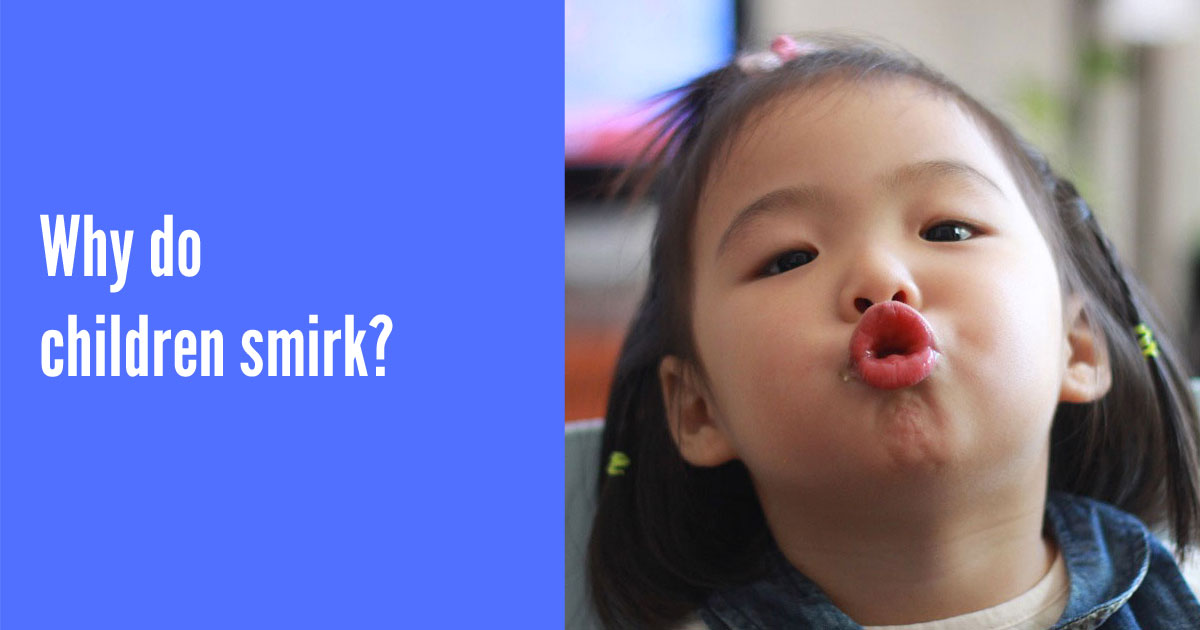According to the Oxford English Dictionary the definition of a smirk is to: “smile in an irritatingly smug, conceited, or silly way.”
We’ve all been there. A pupil has done something wrong and as we reprimand them for their misdemeanour, a slow, creeping smile crosses their lips and turns into a smirk.
For a lot of adults, this is like a red rag to a bull and sets off an instant angry reaction, sometimes even accompanied by ‘What are you smirking at?’ or ‘Wipe that smile off your face.’ Of course, this usually has the exact opposite effect of what we want. By drawing attention to what we perceive to be the child’s inappropriate reaction, we actually magnify it. They do it more. The smirk gets bigger. We get angrier.
So, why do children smirk?
(By the way – if this applies to you – you may find this advice on ‘How to convey calm‘ useful.)
Some psychologists say that smiling or laughing is a good defensive strategy that helps to release tension in the body. Smiling can also be a way of communicating to onlookers that there is nothing to see here; a way of deflecting attention from themselves.
If you’ve ever watched wildlife programmes about monkeys, you’ll recognise that huge manic grin that comes over their faces when a predator or rival from another troop appears. This way of baring their teeth is actually a really primitive response to fear. It is a way of communicating that they feel under threat.
In evolutionary terms, humans are not so different! We smirk when we feel uncomfortable, threatened or defensive, or sometimes to mask our own aggression.
So, when children are being told off, they can perceive that as a threat and will therefore fall back on primitive responses such as smirking, avoiding eye contact or laughing in an attempt to deflect uncomfortable attention from adults.
The problem is, their smirk then triggers an angry response from us as we interpret this as defiance and feel our authority is being threatened.
This is bad because it does not de-escalate the situation, pupils can’t listen and process information whilst feeling scared or uncomfortable, and there is no win:win.
So, next time a child smirks at you, stop and chose to handle the situation more expertly: remove the pressure by making the exchange less public and less confrontational. Recognise what the smirk is communicating and back off, allowing both of you to save face, preserve dignity and maintain your relationship.
Thanks to Sharon DeMaine from Colne Badminton Club for the suggestion for this video. If you have a good idea for our next video clip, please get in touch with me (Emma) by email, using the contact us button at the top of this page.

